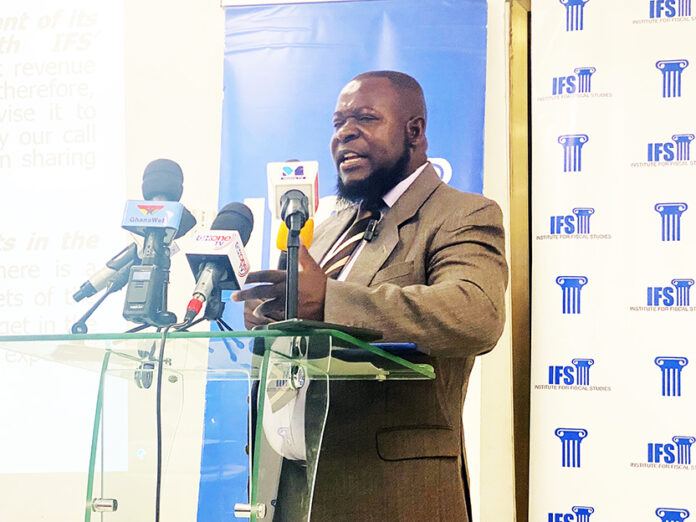The Institute of Fiscal Studies (IFS) has suggested to the government to negotiate with external creditors for the cancellation of our debts.
According to the IFS, securing debt cancellation was crucial for the government to have significant fiscal relief, as the interest payment is budgeted to increase significantly in 2024.
“We, therefore, urge the government to expedite the restructuring to secure the much-needed debt service relief to aid its fiscal recovery. In addition, for the relief to be significant and impactful, it should include cancellation of some of the debts,” the IFS said.
On Wednesday, December 6, 2023 in Accra, the IFS presented its perspective on the 2024 budget statement and economic policy currently before Parliament for consideration and approval.
Senior Research Fellow at the IFS, Dr. Said Boakye, who presented the position of the Institute, referred to the era of Heavily Indebted Poor Countries (HiPC) and the benefits the nation derived from it. He remarked that, but for “bad management” thereafter, Ghana should not have been where it is now.
“So, while borrowing is important to people, if you get relief, which will help us fix our fiscal problems, help us to improve our economic growth, we cannot go to borrow again,” he said.
Dr. Boakye admitted that it was not going to be an easy task for the government to pursue debt forgiveness, but was optimistic that in leveraging the oil sector, for instance, it could happen.
He explained that the sector is run by foreigners who generate huge incomes from the resources that should ordinarily be used to develop the nation.
He suggested that the government could commence discussions on how to negotiate, using the oil sector to defray some debts.
RECOMMENDATIONS
The IFS has recommended to the government that the foreign debt restructuring be expedited, which it said must include securing debt cancellation.
This partly reflects large accrued foreign debt service obligations that have to be budgeted for, since the foreign debt restructuring process has not been completed.
The IFS also recommended to the government that it pursue further efforts to rein in non-interest expenditures. Dr. Boakye mentioned, among others, the review of the government’s flagship programmes.
The Institute commended the government for decreasing compensation expenditures and goods and services as ratios of total revenue and grants, but urged the government to take steps to reduce these expenditures further.
The IFS says further reduction was necessary in the face of the still-large debt service obligations, despite the debt relief already secured.
“To this end, we urge the government to act on its commitment under the IMF programme to review its flagship programmes and to help cut down on budgetary spending and improve efficiency,” Dr. Boakye said.
IFS also want government to also review the extractive sector component of its Medium-Term Revenue Strategy (MTRS).
According to them, the MTRS has woefully failed to tackle Ghana’s weak revenue generation from the extractive sector and thus wants it revised to incorporate active state participation in the sector.
ANALYSIS
In its analysis of the 2024 budget, the IFS touched on revenue and expenditure. Dr. Boakye observed that with regards to revenue, the government has had “a tradition of over targeting revenue.”
He stated that, in 2022 and 2023, the government budgeted total revenue and grants at 20% and 18% of GDP, respectively, but in the 2024 budget, the government has targeted collecting only 16.8% of GDP in total revenue and grants.
“One would, therefore, be tempted to argue that the 2024 revenue projection is realistic and thus obtainable. Nevertheless, we still see it to be overoptimistic and difficult to achieve,” he opined.
On expenditure, he noted that the positive effect of the debt restructuring exercise is only temporary and should not be counted upon to deliver a long-term improvement in the country’s public finances.
The IFS said it is clear from the 2024 budget statement that 2023 has already witnessed the maximum effect of the debt restructuring programme, in terms of savings from interest payments and debt service expenditures in general.
The IFS stated that the large increase in domestically financed capital expenditure is of concern to them, adding that if it was politically motivated, then some of the expenditures are likely to be inefficient.
They based the inefficiency on the fact that certain projects would be selected, based on political rather than economic considerations, as has happened over the years.
In that case, the IFS suggested that it would be much better to save some of these expenditures to help cut the deficit and reduce associated debt service payments.










